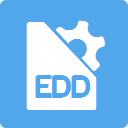Locus introduces environmental Electronic Data Deliverable (EDD) standards
A growing need exists for a standardized format for transmitting environmental electronic data. There are more than 15 different standards in use in the U.S. alone, most of which are antiquated. Locus leverages the latest XML technology to drive standard consolidation and ease of use.
SAN FRANCISCO, Calif., May 30 2007 — Locus Technologies (Locus), the industry leader in web-based environmental data management software, announced today the release of a set of its first standard Electronic Data Deliverable (EDD) formats for the reporting of environmental laboratory analytical data. With the recent signings of several large Fortune 100 clients, and the upcoming tenfold increase in the number of sites with data in the company’s flagship product, EIM™, a growing need exists for a standardized format for transmitting electronic data. Several EDD formats already exist in the environmental industry—some promulgated by government agencies—and others by vendors of commercial software products. However, some of these format “standards” suffer from the requirement that data be submitted in multiple files, while other formats, have antiquated requirements related to field lengths or valid values that originated at a time when hard disk space was at a premium.
Locus’s Extensible Markup Language (XML) formatted single-file standard EDD allows for much more flexibility in file structure, because the data self-identifies each field using labels to bracket its contents. The content is similar and compliant with the (Staged Electronic Data Deliverable (SEDD) format. SEDD is an inter-agency effort spearheaded by the U.S. Environmental Protection Agency (EPA) and the U.S. Army Corps of Engineers (USACE) to create a generic XML-based format for electronic delivery of analytical data for environmental industry.
To simplify the work of legacy systems, Locus is also releasing an EDD standard format, which consists of 53 explicitly defined fields maintained in a single file. Clients may request that additional custom fields be included to meet specific agency, the major state submission, or project requirements. The selection of the fields that are included in the Locus EIM EDD format was based on input from Locus’s user community and experts in analytical data management, as well as a review of the most popular currently used EDDs. The contents of the format permit data to be validated to EPA Level II, if a customer so desires. Locus envisions this format to be transitional for the companies and laboratories that are not yet ready to adopt XML-based technology, but are tired of dealing with multiple and antiquated file formats, which only serve to increase IT costs.
Since the release of EIM in 1999, Locus has allowed companies to design their own EDD formats, and Locus will continue to support this flexibility in its systems. However, Locus believes that the promulgation of a standardized format will allow laboratories to reduce the costs of creating EDDs, minimize errors in the reporting of data, and more quickly support new EIM clients.
“As the leader in environmental data management software, Locus strives to provide guidance, direction, and endorsement to the best ideas in an effort to standardize data management processes. Currently, there are more than 15 different standards for analytical data submittals, and this needs to change,” said Locus’s president and CEO, Neno Duplancic. “We believe that the standards we are releasing today, one transitional and one XML-based, will take steps toward achieving that goal and will help drive uniformity in the marketplace. With more than 35,000 sites reporting through LocusFocus EIM, Locus customers represent the largest users of environmental lab data, so this effort should help drive consolidation of the standards. Locus is committed to meeting all federal and state EDDs and leading the industry in reducing proliferation of incompatible formats by strongly endorsing XML-based SEDD standards,” added Duplancic.
Locus’s XML-based EDD accepts files in Stage 2a SEDD format, which contains the basic analytical results (including the sample ID, analyte, result, and qualifier) plus method quality control data. The EIM import module includes data verification and consistency checks outlined in the Document Type Definition (DTD) for Stage 2a, as well as forms for viewing the data in the imported SEDD file. Both formats can be downloaded for free from the Locus’s website at www.locustec.com.



